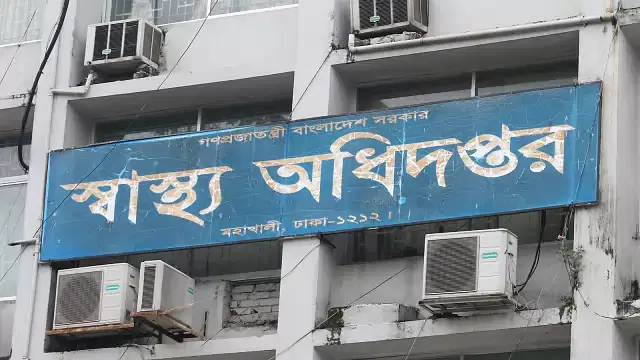
Sample tests for coronavirus have been reduced in the country for eight reasons, including setting fees for tests, according to the meeting minutes of the coordination committee of the Directorate General of Health Services (DGHS). Many are reluctant to take the test because of the fee and this increases the risk of infection.
The meeting minutes of the coordination committee of DGHS on 20 July mentioned the possible reasons for the decrease in the coronavirus identification test.
The other reasons are not doing two consecutive tests to find out the presence of coronavirus in the patient’s body before leaving the hospital, Asymptomatic patients are less interested to test, the overall situation of coronavirus in the country improved, many are not taking the test for fear of being socially degraded in the district and upazila level, faced with a livelihood crisis or fear of job loss, many avoid tests, the DGHS has been encouraging patients to seek treatment through telemedicine at home if they are not seriously ill, and tests have been reduced in some places as communication has deteriorated due to the floods. It is mentioned in the minutes that it was suggested to do 24,000 tests a day.
Mujaherul Haque, a former consultant for the World Health Organization’s Southeast Asia region, told Prothom Alo that the decision to set fees for the tests was wrong. The number of samples has decreased due to fees, flood and not testing the patient before discharge. But the DGHS will not be able to show any evidence that the tests have been reduced for the remaining five reasons, he added.
Several public health experts believe that the Ministry of Health set the fee based on assumption without any evidence. Muzaherul Haque said the ministry should cancel the fee. Canceling the fee will only increase the number of tests.
Professor Mohammad Sahidullah, convener of the National Technical Advisory Committee for coronavirus, told Prothom Alo that adequate tests are needed to know the exact status of the pandemic. He said that initiatives should be taken now so that those who need it should not be excluded from the tests.
According to the standards of WHO, at least 25,000 samples need to be tested daily according to the population of Bangladesh. Bangladesh could not test 20,000 samples even for one day. No one was seen to be accountable in this regard.
The government’s Institute of Epidemiology, Disease Control and Research (IEDCR) was in charge of testing the samples from January to April. IEDCR tested only one or two samples in some of the days. Government delayed to allow International Centre for Diarrhoeal Disease Research, Bangladesh (icddr,b) to conduct tests despite having high-quality laboratories. IEDCR has done the same with more government and private organizations.
Such as getting late test results, not knowing the test results, reporting positive and negative results to a person on the same day, identifying a person who has not been tested as a patient. Incidents of JKG or Regent’s fake certificate have also come to light.
The DGHS allowed coronavirus testing in a number of institutions without first-hand laboratory equipment or capabilities. After the report was published in the newspaper, the approval of five such organizations was also canceled.
If you give a sample at the booth or hospital, the fee is Tk 200 and if the health workers go home and collect the sample, the fee is Tk 500. Since then, daily tests have been reduced. A study by the Institute of Health Economics at Dhaka University found that tests were reduced due to fees.
Additional director general (Planning and Development) of DGHS Sania Tahmina told Prothom Alo that the decision to fix the fees has been taken from higher authorities.
On 26 June, the number of tests increased to 18,498. Three days later, the government issued a notification fixing the fee. One month later, that is, on 25 July, the tests were reduced to 9,615.









